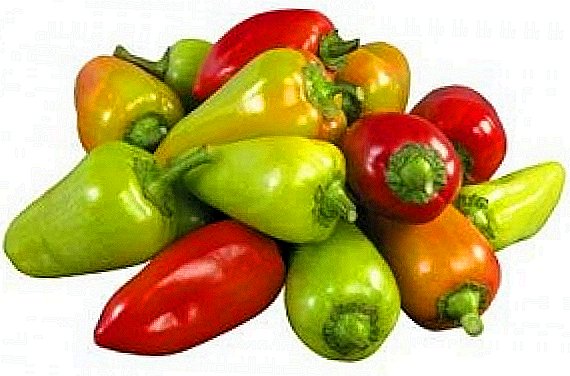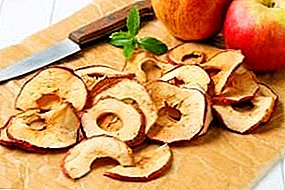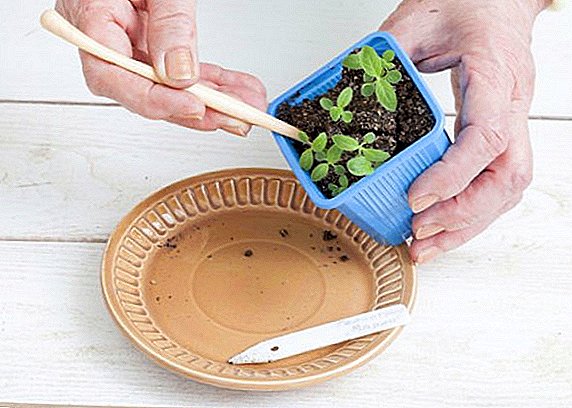 Siberia is a huge region dominated by a sharply continental climate. For agricultural farming it is a high risk area. To grow a good harvest in harsh conditions is very problematic. Nevertheless, planting and growing potatoes in Siberia occupies a significant place in the development of agriculture.
Siberia is a huge region dominated by a sharply continental climate. For agricultural farming it is a high risk area. To grow a good harvest in harsh conditions is very problematic. Nevertheless, planting and growing potatoes in Siberia occupies a significant place in the development of agriculture.
The best potato varieties for cultivation in Siberia
More than 400 varieties of potatoes are grown in Russia, and each of them has both advantages and disadvantages. However, not all varieties can grow in the conditions of the harsh Siberian cold. To solve this problem, scientists have done a great job of removing frost-resistant varieties of culture. Ideal potato varieties for cultivation in Siberia should be as hardy as possible while fruitful:
- "Alyona": a fruitful potato variety, distinguished by resistance to scab, potato carcinoma and rhizoctoniosis. It is characterized by large oval tubers, covered with smooth pink peel, tolerates drought and transportation.
- "Priekule Early": popularly called "forty days" for the rate of aging. It is a round-oval root vegetable covered with a smooth light skin. The variety is interesting in that it ripens before the onset of a disease with its possible diseases.
- "Luck": tolerates any weather, perfectly stored, not prone to disease. A large variety of early ripening, has a rounded shape and a thin light skin.
- "Adretta": it is considered the most "tenacious" variety of seed potatoes and is ideal for planting in Siberia. It has a rounded oblong shape with a rich yellow flesh. Ripens root vegetable for 70 days, has good taste and is suitable for all types of heat treatment.
- "Zhukovsky Early": unpretentious, precocious variety of long storage. It has excellent taste, does not boil soft during cooking. Tubers are covered with light pink smooth skinned, large, with perfectly white flesh.





Did you know? Potato varieties vary in size, taste, color, shape, content of chemicals and starch. In addition to the usual white and yellow potatoes, there are varieties of red, black and even blue. Frost-resistant species that can withstand temperatures as low as -10 ° C and varieties that are indifferent to the Colorado potato beetle have been bred.
Planting time of potatoes in Siberia
According to the agrotechnology of potato cultivation, the root planting period in Siberia begins much later than in other, more southern regions of the country. but there is no average landing time, since Siberia is located in three time zones. In the western regions, planting of potatoes begins as early as the beginning of May; in the eastern regions of Siberia, they start planting two weeks later.
Important! Planting potatoes in Siberia can be heated to 15 cm deep into the earth, which reaches 6-8 degrees of heat, in order to avoid poor development of root crops.
Choosing a place to grow potatoes
Potato - photophilous planttherefore it is important to prepare for its disembarkation a plot not shaded by trees or shrubs. Plant tubers need to light, loose soil, well fertilized with manure.
Important! Manure must be made in the autumn under digging. If you make it in the spring, the potato will die.
In the spring you can fertilize the land with humus, compost, peat, chicken droppings.

Potatoes cannot be planted after plants of solanaceous plants of similar origin, they may have similar pests or diseases. No need to plant a crop where last year the land was infected with a nematode, scab, and other diseases. Potatoes grow well after cabbage, beets, carrots, lettuce or cucumber.
Did you know? The potato plant is poisonous, it is capable of accumulating solanine. First of all, berries are rich in solanine, but tubers can also accumulate it under the influence of sunlight (this is characterized by the green color of the peel).
Preparatory work on the site
In order for the winter to rid the soil of weeds and pests, it is necessary to dig her fall. Dig deep to the full bayonet shovels. In the process it is desirable to remove all the rhizomes of weeds, to find and destroy the larvae of the May beetle, the wireworm.
After digging, there should be no depressions in the area, so that during the rain the water does not accumulate in them, causing potato rot. Manure brought under the digging should not remain at the top, otherwise it will dry out and lose its properties.
Organic fertilizers promote the growth of potatoes, but they slowly decompose, so they are not used at the beginning of the growth of potatoes. To provide the culture with useful substances at the beginning of its growth, mineral fertilizers are used, such as superphosphate, potassium sulfate, ammonium nitrate, and wood ash.

Did you know? Potatoes are uniquely compatible with other products and are amenable to all methods of heat treatment. From a unique tuber you can cook more than two thousand not only first and second courses, but also desserts.
Preparation of planting material
From the end of March, seed potatoes can be prepared for planting. When about 30-35 days remain before planting the tubers, potatoes can be taken from the cellar for germination in Siberia.
Important! Shoots should come out quickly and get the energy of the spring sun. Therefore, only planting material that has developed sprouts and root buds is planted.
Medium sized tubers are necessary for planting. If the tubers are too large, they can be divided into 2-3 parts immediately before planting.
Before planting potatoes in the ground, planting material is necessary to disinfect. Tubers can be disinfected with boric acid, potassium permanganate (potassium permanganate) or garlic infusion.
In the future, it will protect the plant from pests and serve as a stimulator of its growth. Tubers can be treated either by soaking them in a disinfecting solution for two hours, or by spraying.
Important! It is possible to spray planting material only when there are no sprouts on the tubers.

For active germination of the culture throughout its tubers are made additional cuts. They are made in two ways - transverse and annular.
A transverse deep incision is made perpendicular to the tuber axis. A small part remains uncut, no more than one centimeter thick.
It will be interesting to read about other vegetables: rokambol, onions, okra, lagenaria, pepper-chili, tomatoes, cabbage, zucchini, cowpea.
An annular incision is more effective and is performed in a shingles manner to the depth of the phloem layer, up to 1 cm.
Stimulating incisions are made about two months before the tubers are planted, until the eyes begin to germinate.

Important! To prevent the spread of disease you need to select healthy seed and handle the knife.
The process and scheme of planting potatoes in Siberia
It is known that in order to plant potatoes in Siberia correctly, straw, leaf litter or hay is used as mulch after mowing grass. There is at least three ways plant potatoes in this region.
Single line - the most common method. Planting material is planted in rows at a distance of about 25 cm from each other. The row spacing is 60-70 cm. The depth of planting potatoes with this method is most suitable for the harsh climate in Siberia - only 7 cm.
Belt - landing method used on an industrial scale. Planting is done in two rows with a distance of 30 cm between them. Further furrows are placed at a distance of 110 cm. When the tractor is hilling potatoes planted in this way, the roots of the crop are not damaged.
The ridge is similar to the method of planting in furrows (ridges are made at a distance of 70 cm). The difference is only in the artificially created height of the row, reaching 20 cm. This method of planting is used on overwetted "heavy" soil; it allows you to harvest a crop earlier than two weeks.
Important! Only when the earth is well warmed, you need to plant potatoes in Siberia.
The thickness of the straw blanket (mulch) depends on its quality - foliage should cover the ground by 15 cm, cereal up to 40 cm.

Growing and caring for potatoes in Siberia
Caring for potatoes in Siberia begin before germination. Caring for the crop is divided into several stages: watering, weeding and loosening, hilling bushes, fertilization and protection from pests.
Watering
One of most important factors affecting the yield of the crop. The first watering is carried out in half a month after emergence of shoots.
When the budding phase begins, it is recommended to control the soil moisture. If the earth dries to a depth of 7 cm due to dry weather, a second watering is necessary. It is desirable to water in the evening, spending up to 7 liters of water for each bush. If the season was dry, then you need to water the potatoes up to five times.
A day after watering the land must be loosened.
Important! Potatoes especially need watering during budding and tuberization.

Weeding and loosening the soil
It is necessary to periodically loosen the soil, giving the tubers access to oxygen. At the same time you need to clean it from weeds. These procedures should be carried out systematically as the ground part of the plant grows.
The enrichment of the air roots contributes to an increase in potato tubers. Loosen the soil preferably after each rain or watering, removing weeds and breaking the crust. This makes it possible to reduce the pressure of the earth on the tubers.
Important! You can not weed the potatoes, if he has not yet appeared from the ground - you can damage the growth point of the seedling, and it will die.
Hilling bushes
June frosts often occur in the northern region, so you need to periodically place mulch from mowed weeds, hay and grass.
Inter-row treatment of tubers protects the young plant from frost, eliminates weeds, accumulates moisture and gives a good air flow to the roots.
The first hilling is done immediately after the emergence of young shoots of potatoes.

When the plant rises from the ground at 15-17 cm, it is necessary to spud a second time and weed weeds.
Did you know? The largest tuber was grown in Lebanon and weighed more than 11 kg.
Fertilization
Potatoes need to be fed organic and mineral fertilizers.
For the season it is recommended to fertilize potatoes three times. The first feeding is made for the good development of young tops. Usually, urea is used for this.
The second time the potato is fertilized to speed up the flowering process at the time of budding. Used in this ash and potassium sulfate.
The third dressing during flowering speeds up the process of tuber formation. It is produced using superphosphate.
Important! Fertilize potatoes should be only after watering or rain.
Pest protection
First of all, you can not plant potatoes in the same place of the site, it is better to alternate with areas for garlic and pumpkin, for example. So you can prevent the early appearance of pests of potatoes.
There are a large number of chemicals that help get rid of pests and diseases of potatoes. Some gardeners still manage loyal ways, such as soap and vitriol. The main obstacles to the cultivation of a rich potato crop are the Medvedka, Colorado potato beetle, wireworm, scab and late blight.
Colorado potato beetle called a potato killer. Get rid of it by collecting and destroying insects from eggs to adults. Also use broths celandine for spraying planted areas and planted to the potato plants, frightening the pest with its smell (beans or coriander).
Insecticides will help you in the fight against potato pests: Bitoxibacillin, Inta-vir, Karbofos, Aktara, Bi-58.
To protect against wireworm, larvae of the click beetle, use fertilizers containing ammonia. It is necessary to constantly loosen the soil and get rid of weeds. It is desirable to lower the acidity of the earth by adding lime mortar or dolomite flour to it.

Medvedka - It is a pest that eats tubers and potato roots. They get rid of it by deep digging the ground in the fall, scaring off sharp coniferous or garlic odors, and obligatory timely harvesting. Sometimes salt solution, salt blue solution, copper sulfate solution or poison from insects is poured into the holes.
Scab - This is a fungal disease, it affects the potato tubers. The treatment of the culture with manganese compounds or boric acid will help get rid of it. Scab infected tubers should be dug along with the ground and burned. This will prevent the spread of the disease to neighboring bushes and plants of the next season.
Late blightor potato rot is a fungal disease that develops in wet and warm weather.
Important! Late blight - a disease that affects tuberous, and the leafy part of the potato. Annual crop losses of up to 15% occur from it.
To get rid of the fungus, you can use fungicides or brilliant green solution.
To prevent the occurrence of late blight, you can avoid the accumulation of moisture on the ground and planting potatoes next to other solanaceous crops, fertilizing the soil with potassium and phosphorus.
Harvesting and storage of the crop
Harvesting takes place after the tops begin to dry. Early varieties of potatoes are harvested in Siberia from mid-August, while others, depending on the weather, are harvested from mid-September to the first decade of October.
Did you know? Monuments to potatoes have been erected in Minsk, Mariinsk and Besezhezha (Poland). In Korosten (Ukraine) there is a monument of potato pancakes. In Bruges (Belgium) and Blackfoot (USA) museums dedicated to potatoes are opened.
A couple of weeks before harvesting the tops should be mowed. This prevents the occurrence of fungal diseases, contributes to a better ripening of root crops and compaction of their skin. Digging potatoes with a shovel or pitchfork must be very careful not to damage it, since during storage damaged tubers are affected by diseases.

A suitable temperature for storing potatoes in Siberia is 2-4 ° С, air humidity is 90-92%. Potatoes are usually stored in cellars, closets or underground. Long-term savings of potatoes will ensure their preliminary drying, cleansing from the remnants of the earth and the elimination of diseased or injured root crops.
Grow a good potato crop in Siberia is quite realistic. The main thing is to follow certain rules of cultivation and choose the appropriate variety.












